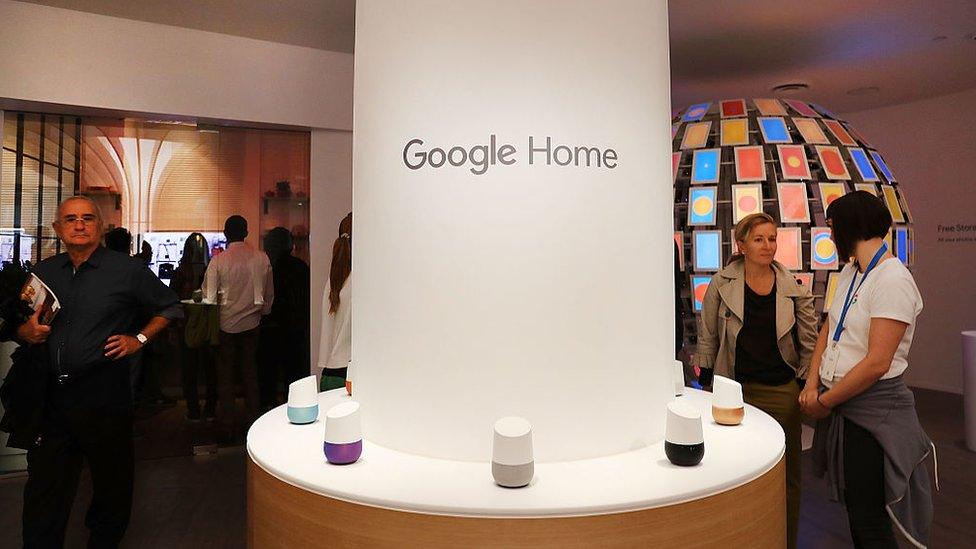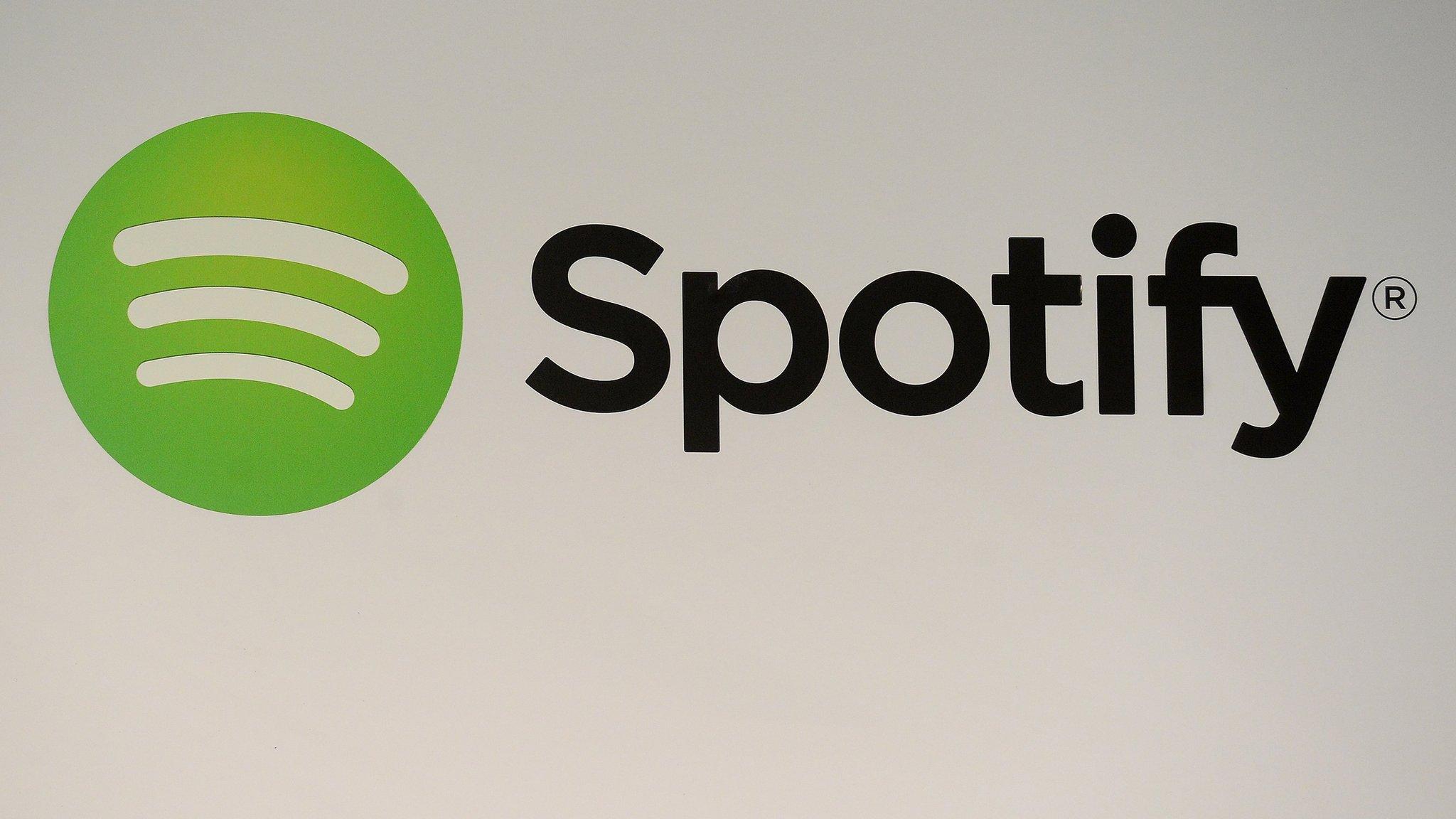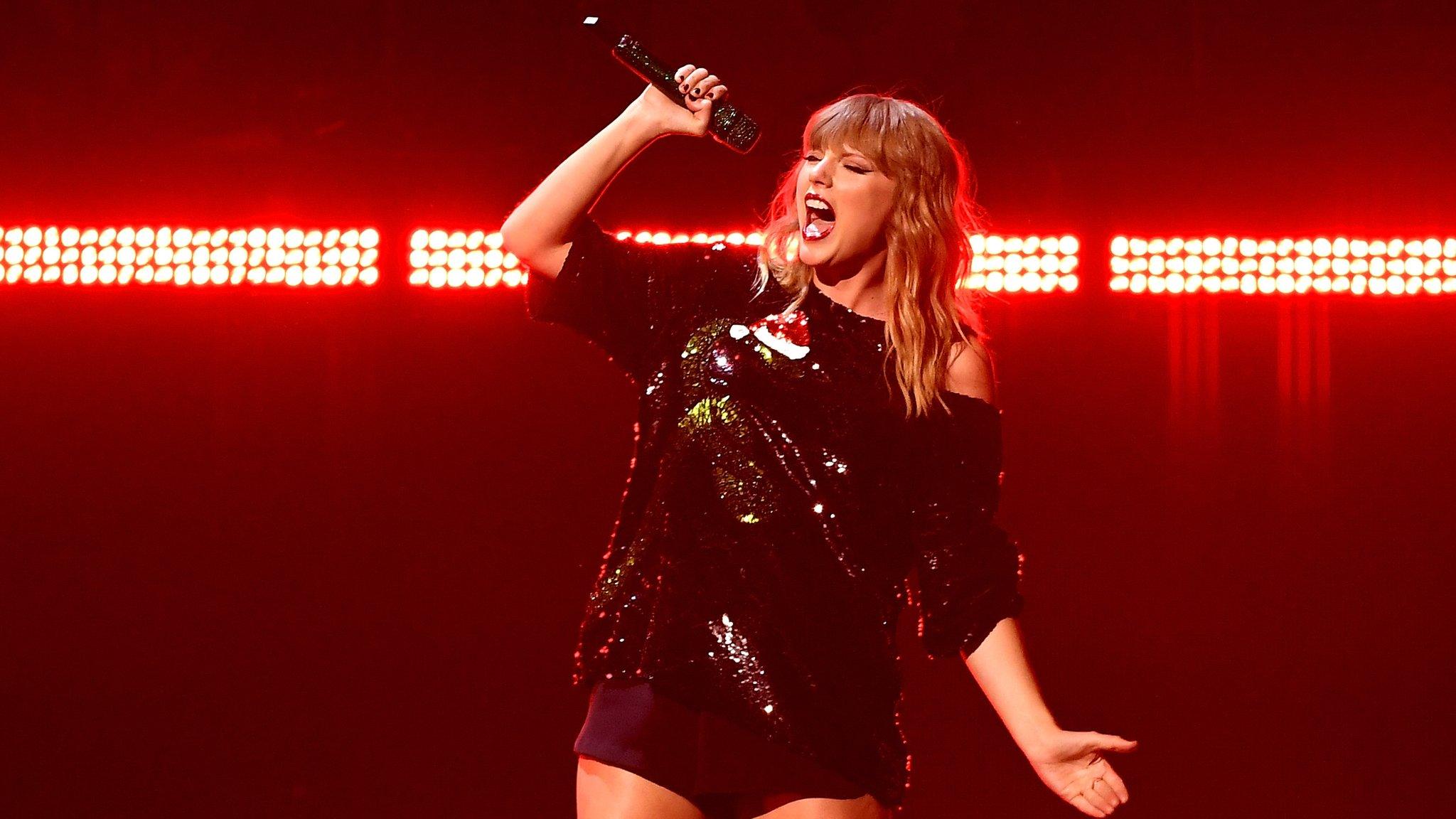Streaming fuels music industry boom
- Published
- comments

Ed Sheeran was the most streamed artist in the UK in 2017
For years the music industry was the poster child for digital disruption.
The record giants were portrayed as dinosaurs, thrashing around helplessly as piracy took away their revenues and tech giants took on the job of leading the industry into the future.
But today it's bright confident morning again for the UK music business - and most of the credit goes to the boom in streaming.
Overall, music revenues grew by 9.6% in 2017 according to the Entertainment Retailers Association, with streaming revenues from subscriptions to services like Spotify up 41.9%.
Separate figures from the BPI, which represents the record labels, show that streaming now accounts for more than half of UK music consumption,
Despite a lot of breathless talk about the vinyl revival, that's still a pretty small contributor and overall physical sales were down 3.4%.
Streaming - once regarded with deep suspicion by both the artists and the labels - now looks like the path back to prosperity in the digital era.
One cynical music industry executive told me the labels were now rewriting history: "They opposed every single new technology and said it was the end of the world. Now suddenly streaming was all their idea," they said.
Certainly the big companies seem convinced that the good times are back - news of the bumper pay packages awarded to executives at Warner Music Group raised eyebrows recently. But not everybody is so sure that the days of first class travel and unlimited spending on flowers for the office are - or should be - back.
Two forces - the power of the tech platforms and the anger of the artists - mean that the days of disruption may not be over.
Power game
Back in 2005, while the industry was beset by gloom, 98% of its revenues came from products over which it had a fair measure of control - either physical sales or digital downloads.
Now it has handed control over more than half of its revenue to the likes of Spotify and Apple Music, with their one size fits all £9.99 per month subscription packages.
Meanwhile, artists still aren't completely reconciled to the streaming model - and in particular the fact that, by one estimate, they get just 19% of the revenues earned by the record companies.
We have already seen major artists stamping their feet and demanding better deals - or negotiating directly with streaming services.
There's a complex three-way power game underway, with the tech platforms, the labels and the artists all dependent on each other - but it is no longer clear that the labels' sheer marketing muscle gives them the upper hand.

But technology - once seen as a threat - could now help to expand the music market.
In the "good old days" only half of the UK population ever bought a CD each year.
Now smart devices like the Amazon Echo and the Google Home are giving an older audience a reason to bring music back into the home.
For anyone who wants to see music have a sustainable and profitable future, there are plenty of reasons to be cheerful.
- Published3 January 2018

- Published2 January 2018

- Published19 December 2017
